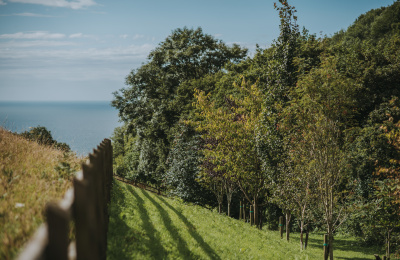Conservation is key to The Donkey Sanctuary’s work. A group of bee-lovers recently joined us to discover why bees are brilliant, how they help the environment, and why our donkeys need them.
Bees and donkeys may not be the most obvious of accomplices, but The Donkey Sanctuary’s conservation team recently held a bumblebee workshop to show exactly how these popular pollinators help our Sidmouth donkeys’ environment.
Joining up with the Bumblebee Conservation Trust, the day-long course saw members of the public, Donkey Sanctuary staff and volunteers, local National Trust rangers and conservation trainees from Natural England get together at our Sidmouth sanctuary.



After learning how to identify the different species of bee, the group explored some of the wildflower beds created by the conservation and gardening teams at Slade House Farm.
Daniel Brown, Conservation Officer at The Donkey Sanctuary, said: “The Bumblebee Conservation Trust knows roughly where different bee species are but not how many of these bees there are. We were therefore given training to conduct their Bee Walk, which involves counting the number of bumblebees observed along a 1-2 km route. This helps the Trust estimate the abundance of bumblebees across the UK.”
Bees are brilliant
Bumblebees are at the heart of our grassland’s ecology, and without them, many of our wildflowers would not be able to cross-fertilise and produce seeds.
The presence of different bee species can tell us about the health of our environment. Luckily, bumblebees are relatively conspicuous and easy to identify, so our wildlife and conservation team can use them as indicators for habitat quality.
The more ‘indicator species’ our conservation team sees – including bees, bats, birds and butterflies – the more we can learn about the land our donkeys live on, making the goodwill of the volunteers and members of the public who come to help us even more vital.



The Donkey Sanctuary occupies over 1,200 acres of farmland in Devon and Dorset, most of which falls within the rolling hills of the East Devon Area of Outstanding Natural Beauty. This land provides our resident donkeys with summer grazing pastures and haylage for the winter, as well as supporting wildlife and semi-natural habitats.
Our donkeys and mules gain so much from the rich and diverse grazing opportunities in Sidmouth – helped in no small part by the bees that share their home. If we want to enable our donkeys to enjoy a fulfilled lifestyle, it is a priority for us to safeguard the longevity and quality of the wildlife habitats around us too.


